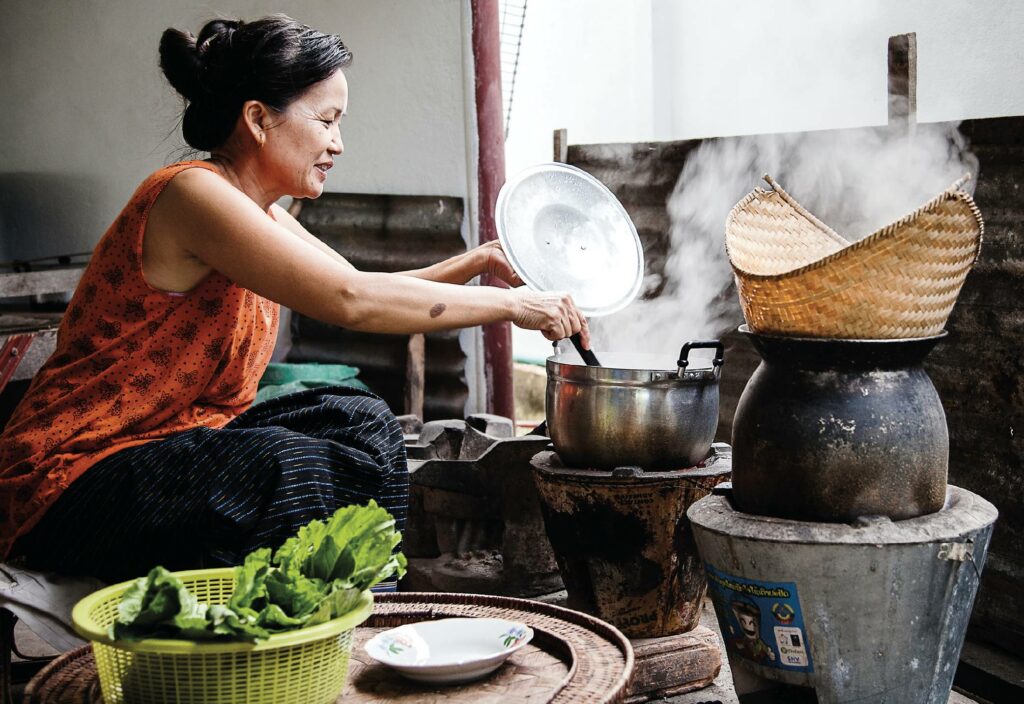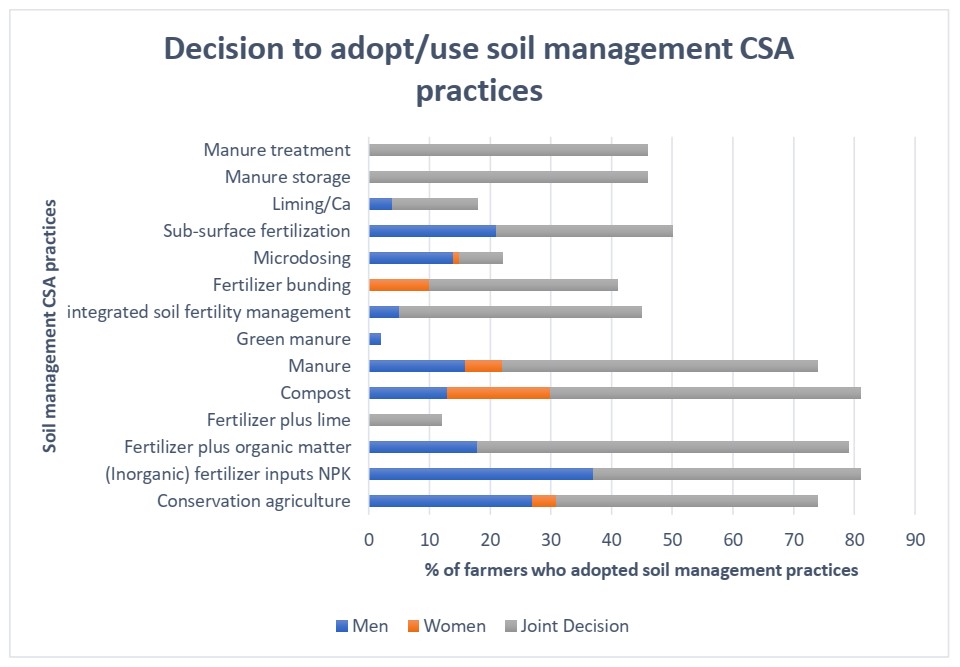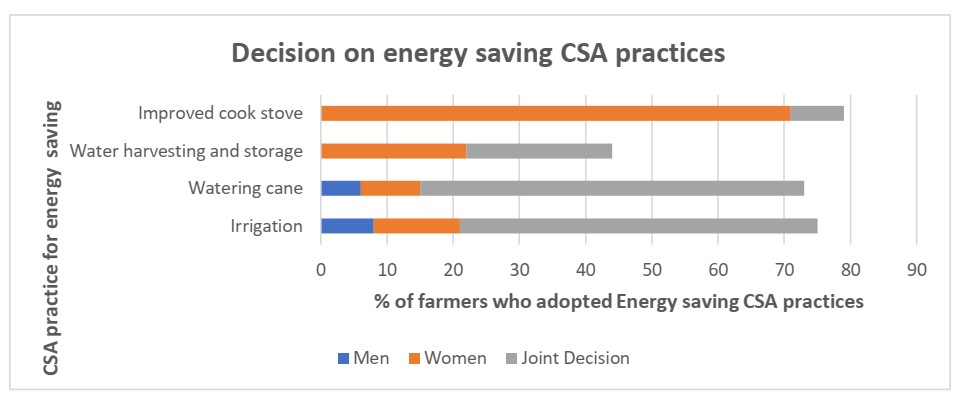
The adoption of Climate-Smart Agriculture (CSA) practices/technologies face a myriad of hindrances ranging from access to resources, education, age, and gender. Gender, in particular, defined in this context as “the state of being male or female” is crucial in the effective uptake of CSA practices and technologies especially in rural areas of developing countries where its meaning is dichotomized. For instance, decision-making in adopting CSA can be influenced by who holds such powers within the household.
The findings of a study conducted by the 3D4AgDev program in Malawi in the uptake of CSA practices revealed that men and women can jointly decide to adopt practices such as soil management practices for example. (Refer to Figure 1: However, the results also revealed that in the adoption of CSA practices such as Conservation Agriculture (CA), Men and women had different negotiatu=ing powers. An indication that despite arriving at a joint decision-making point, Men can have more influence than women. However, women have the power to decide on some practices. For example the use of improved cookstoves.
The results can be attributed to ascribed gender roles. Figure 2 shows a different trend where the number of decision-making for practices such as intercropping with legumes, use of watering. These findings reinforce research conducted in Eastern and Southern Africa where gender-related constraints perpetuate division in decision-making for CSA uptake.


The key to reduction and subsequent alleviation of gender constraints in the uptake of CSA is for programs and projects to take into consideration the needs and priorities of men and women that influence their decision-making in the adoption of CSA practices. Women are vital agents of change at households and community levels. To achieve desired outcomes, greater emphasis should be placed on the agency of women to take ownership and implement changes at the farm level, in addition to ensuring that women have the resources to do so by reforming instructional arrangements.
Bibliography
KHOZA, S. 2020. A gendered approach to climate smart agriculture adoption by smallholder farmers in Malawi and Zambia. North-West University (South Africa).
MURAGE, A., PITTCHAR, J., MIDEGA, C., ONYANGO, C. & KHAN, Z. 2015. Gender specific perceptions and adoption of the climate-smart push–pull technology in eastern Africa. Crop Protection, 76, 83-91.
TSIGE, M., SYNNEVÅG, G. & AUNE, J. B. 2020. Gendered constraints for adopting climate-smart agriculture amongst smallholder Ethiopian women farmers. Scientific African, 7, e00250.
